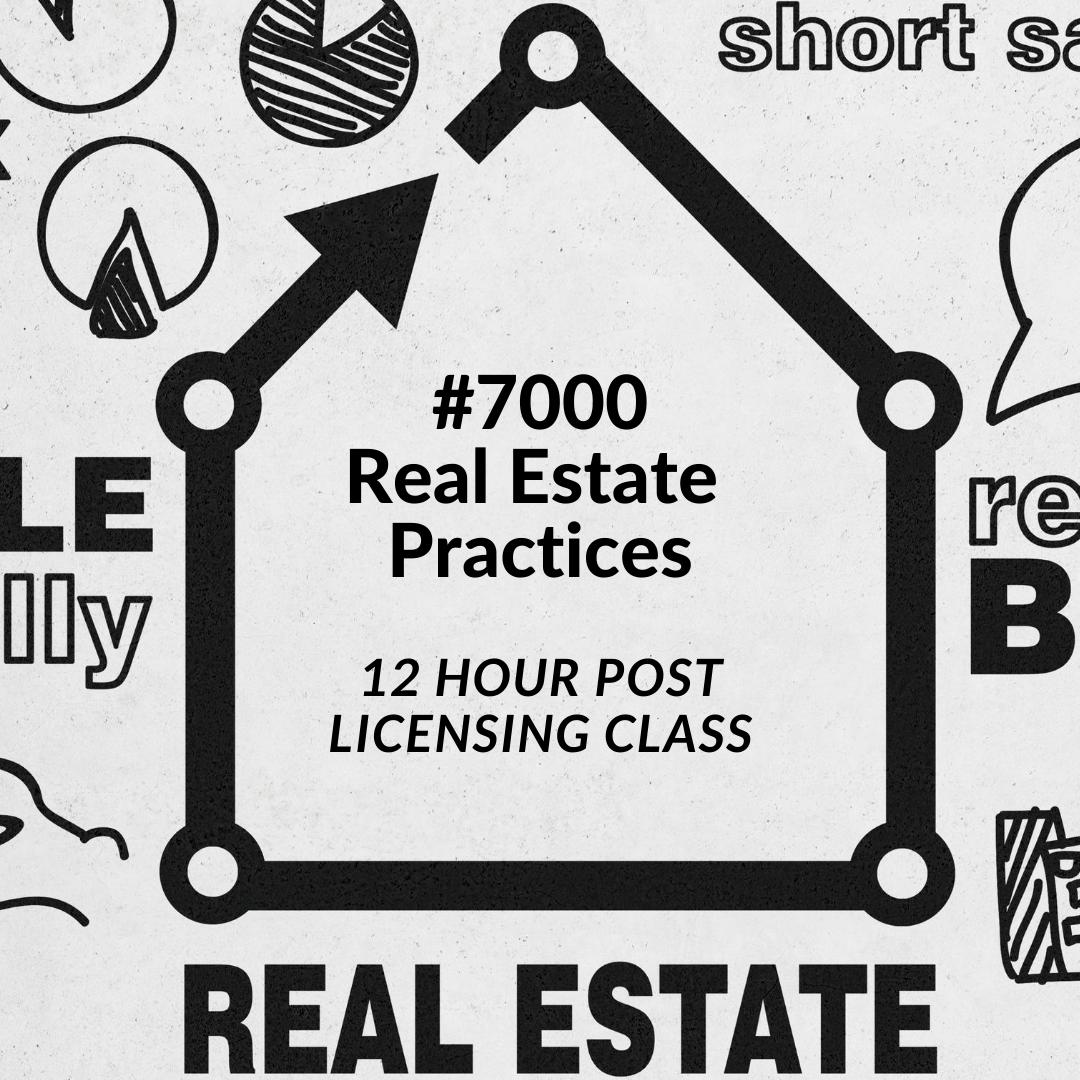
A short sale involves a real property transaction in which the lender agrees not to pay more than what is owed on the loan. Although it is an option for homeowners who have financial difficulties, it can also be confusing.
Explain a Short sale: A Bank's process
When a homeowner decides to short sell their house, they will need to present their financial information and prove that they are unable to make their regular payments anymore. This information can include paystubs as well bank statements and hardship letters.
Once a homeowner has shown the lender that they are no longer able to keep up with their loan payments, it will be time to submit a short sale application. Here they will provide all financial and personal information to the bank, as well as an appraisal or broker's opinion on value.

This information will be reviewed by the bank and approved or denied by them. If they approve the short sale, the home will be listed at a reduced cost.
If the homeowner isn't able to sell their property, the bank can file a foreclosure on the property. This can prove to be very costly and time-consuming for both the bank and homeowner.
Explain a quick sale: The process for buyers 2019
When a buyer is looking to buy a short sale, they will need to be prepared for a long and complicated process. It will take longer to negotiate contracts and get approval than it does for a traditional sales process.
It will take a lot of patience and understanding on the part of the buyers as well as the seller to successfully complete a short sale. It will take many hours to close the deal and make sure all the paperwork is in place.

In addition to these challenges, the buyer will need to be able to make a large down payment on the home to be approved for a short sale. If they can't, the bank will be hesitant to accept their offer because it might not be worth the trouble to accept an offer on a property that is in such bad condition.
This can make it more difficult and costly to negotiate. This is why it is important for the buyer to have a good real estate agent who can help them through this difficult process.
A short sale can be a great option for buyers who have financial problems and want to sell their homes. It can be difficult to get a short sale approved by a bank, but it can be done and will benefit both the lender and the buyer. A buyer looking to buy a property that is affordable and avoids foreclosure is able to do so.
FAQ
What are the 3 most important considerations when buying a property?
The three most important factors when buying any type of home are location, price, and size. Location is the location you choose to live. The price refers to the amount you are willing to pay for the property. Size is the amount of space you require.
What should you think about when investing in real property?
You must first ensure you have enough funds to invest in property. You can borrow money from a bank or financial institution if you don't have enough money. Also, you need to make sure you don't get into debt. If you default on the loan, you won't be able to repay it.
You also need to make sure that you know how much you can spend on an investment property each month. This amount must be sufficient to cover all expenses, including mortgage payments and insurance.
Also, make sure that you have a safe area to invest in property. It is best to live elsewhere while you look at properties.
What are some of the disadvantages of a fixed mortgage rate?
Fixed-rate mortgages tend to have higher initial costs than adjustable rate mortgages. You may also lose a lot if your house is sold before the term ends.
Can I get another mortgage?
Yes. However it is best to seek the advice of a professional to determine if you should apply. A second mortgage is used to consolidate or fund home improvements.
What should I look for when choosing a mortgage broker
A mortgage broker is someone who helps people who are not eligible for traditional loans. They shop around for the best deal and compare rates from various lenders. This service is offered by some brokers at a charge. Some brokers offer services for free.
Is it cheaper to rent than to buy?
Renting is generally less expensive than buying a home. However, you should understand that rent is more affordable than buying a house. There are many benefits to buying a home. For example, you have more control over how your life is run.
Statistics
- 10 years ago, homeownership was nearly 70%. (fortunebuilders.com)
- Some experts hypothesize that rates will hit five percent by the second half of 2018, but there has been no official confirmation one way or the other. (fortunebuilders.com)
- Based on your credit scores and other financial details, your lender offers you a 3.5% interest rate on loan. (investopedia.com)
- This seems to be a more popular trend as the U.S. Census Bureau reports the homeownership rate was around 65% last year. (fortunebuilders.com)
- This means that all of your housing-related expenses each month do not exceed 43% of your monthly income. (fortunebuilders.com)
External Links
How To
How to Manage a Property Rental
Renting your home can be a great way to make extra money, but there's a lot to think about before you start. We'll help you understand what to look for when renting out your home.
Here are some things you should know if you're thinking of renting your house.
-
What do I need to consider first? Before you decide if you want to rent out your house, take a look at your finances. You may not be financially able to rent out your house to someone else if you have credit card debts or mortgage payments. Also, you should review your budget to see if there is enough money to pay your monthly expenses (rent and utilities, insurance, etc. ), it might not be worth it.
-
What is the cost of renting my house? Many factors go into calculating the amount you could charge for letting your home. These factors include the location, size and condition of your home, as well as season. It's important to remember that prices vary depending on where you live, so don't expect to get the same rate everywhere. Rightmove estimates that the market average for renting a 1-bedroom flat in London costs around PS1,400 per monthly. This means that your home would be worth around PS2,800 per annum if it was rented out completely. It's not bad but if your property is only let out part-time, it could be significantly lower.
-
Is it worth it? You should always take risks when doing something new. But, if it increases your income, why not try it? It is important to understand your rights and responsibilities before signing anything. Not only will you be spending more time away than your family, but you will also have to maintain the property, pay for repairs and keep it clean. These are important issues to consider before you sign up.
-
What are the benefits? There are benefits to renting your home. You have many options to rent your house: you can pay off debt, invest in vacations, save for rainy days, or simply relax from the hustle and bustle of your daily life. It is more relaxing than working every hour of the day. If you plan ahead, rent could be your full-time job.
-
How do I find tenants Once you decide that you want to rent out your property, it is important to properly market it. Listing your property online through websites like Rightmove or Zoopla is a good place to start. Once potential tenants reach out to you, schedule an interview. This will allow you to assess their suitability, and make sure they are financially sound enough to move into your house.
-
What are the best ways to ensure that I am protected? You should make sure your home is fully insured against theft, fire, and damage. You will need insurance for your home. This can be done through your landlord directly or with an agent. Your landlord will typically require you to add them in as additional insured. This covers damages to your property that occur while you aren't there. This does not apply if you are living overseas or if your landlord hasn't been registered with UK insurers. In these cases, you'll need an international insurer to register.
-
Even if your job is outside the home, you might feel you cannot afford to spend too much time looking for tenants. It's important to advertise your property with the best possible attitude. It is important to create a professional website and place ads online. Also, you will need to complete an application form and provide references. Some prefer to do it all themselves. Others hire agents to help with the paperwork. It doesn't matter what you do, you will need to be ready for questions during interviews.
-
What should I do after I have found my tenant? If you have a current lease in place you'll need inform your tenant about changes, such moving dates. You can negotiate details such as the deposit and length of stay. It's important to remember that while you may get paid once the tenancy is complete, you still need to pay for things like utilities, so don't forget to factor this into your budget.
-
How do I collect my rent? When the time comes to collect the rent, you'll need to check whether your tenant has paid up. You'll need remind them about their obligations if they have not. Any outstanding rents can be deducted from future rents, before you send them a final bill. You can always call the police to help you locate your tenant if you have difficulty getting in touch with them. They will not usually evict someone unless they have a breached the contract. But, they can issue a warrant if necessary.
-
How can I avoid problems? Renting out your house can make you a lot of money, but it's also important to stay safe. Consider installing security cameras and smoke alarms. It is important to check that your neighbors allow you leave your property unlocked at nights and that you have sufficient insurance. Finally, you should never let strangers into your house, even if they say they're moving in next door.